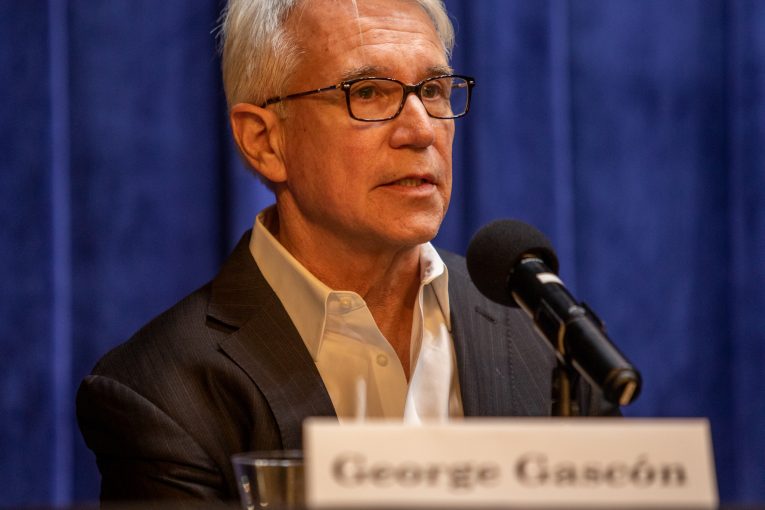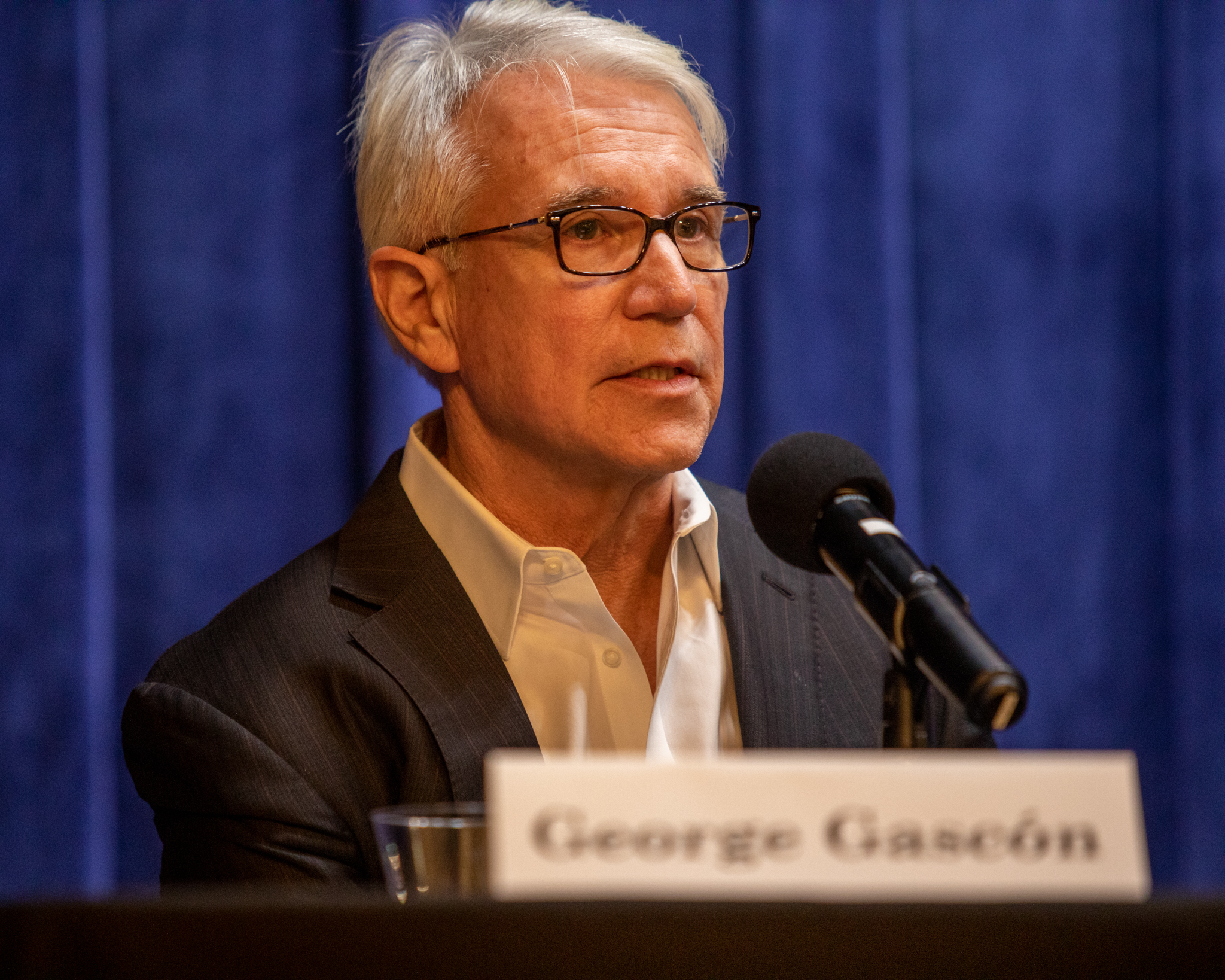

By David M. Greenwald
Executive Editor
Los Angeles, CA – It is a battle that is escalating between the Deputy DA’s of Los Angeles and District Attorney George Gascón. On Thursday, the Association of Deputy District Attorneys for Los Angeles County (ADDA) announced that it is seeking an injunction in Superior Court to prevent the DA from allegedly “continuing to violate the law by again appointing ineligible political supporters to civil service protected positions in the District Attorney’s Office.”
“In a move that flouted the Charter’s protections, Respondent Gascon appointed political supporters who were Deputy Public Defenders to civil service protected positions within the
District Attorney’s Office,” the motion reads. “This was done notwithstanding the existence of validated lists of eligible and qualified Grade II and III Deputy District Attorneys candidates.”
They argue, “This action is necessary to preserve the status quo while the Civil Service Commission hears the ADDA appeals of prior ineligible political appointments by the District Attorney.
“The lawsuit seeks to stop the sitting district attorney, George Gascón from filling the civil service ranks with political loyalists and financial supporters,” the ADDA claims. They alleged, in violation of the LA County Charter which established a Civil Service System, “the District Attorney hired unqualified political supporters from the Public Defender’s Office and appointed them to Deputy District Attorney positions instead of selecting qualified career prosecutors on the active eligible lists for those positions.”
A spokesperson for the DA, Alex Bastian declined to comment on the injunction and the suit citing pending litigation.
The ability to hire new employees is not the only issue facing the newly elected DA in Los Angeles.
Meanwhile on Friday morning, a bipartisan group of 76 current and former elected prosecutors and Attorneys General collectively representing nearly 60 million people filed an amicus brief in the California Court of Appeal in Nazir v. Los Angeles County Superior Court, supporting Los Angeles County District Attorney George Gascón’s exercise of well-established prosecutorial discretion.
In a release from Fair and Just Prosecution, they note, “Gascón was elected on a promise to end the use of draconian sentences that contributed to mass incarceration; although he put those policies into place once in office, a trial judge foreclosed efforts by Gascón’s office to withdraw sentencing enhancements filed his predecessor. “
Now an appellant court will “decide whether trial courts can prevent elected prosecutors from exercising their constitutionally protected discretion to implement reform.”
The amicus brief argues that the trial court’s decision “would set a dangerous precedent undermining the discretion uniquely vested in our nation’s elected prosecutors.”
The brief argues that “Gascón’s efforts to end the use of sentencing enhancements is predicated on the exact platform that he was elected to carry out, which included his promise to roll back harsh prosecutorial practices that contributed to excessive incarceration rates, particularly for people of  color, and that have not been shown to improve public safety.”
color, and that have not been shown to improve public safety.”
“The people of Los Angeles County elected George Gascón to move away from dated ‘tough on crime’ approaches and bring about sensible, data-driven reforms that promote safer and healthier communities,” said Miriam Krinsky, Executive Director of Fair and Just Prosecution (the organization that organized the brief) and a former federal prosecutor in Los Angeles, as well as the former President of LA’s Ethics Commission.
In the brief, amici underscore the fundamental obligation of elected prosecutors to carry out their job in ways that take into account the interests of justice and the prudent use of limited resources: “No prosecutor has the ability and resources to prosecute every case and every violation of the law – nor should they…. [I]t is well-settled that elected prosecutors make decisions about where and how limited resources are best exercised and what cases merit entry into the justice system.”
“The voters of Los Angeles put DA Gascón in office because of his commitment to roll back the carceral policies that exploded prison populations without making us any safer. No court should stand in the way of his efforts to implement that vision,” added District of Columbia Attorney General Karl Racine, a signatory on the brief.
“Like DA Gascón, I’m an elected prosecutor, and we are accountable to our communities to make decisions that promote public safety and to follow through on the vision for justice we promised,” said Wyandotte County, Kan. District Attorney Mark Dupree, another signatory to the brief.
DA Gascón, they argue, “is just one of the many elected prosecutors across the country who is refraining from seeking certain sentences as matters of office policy. While the trial court denied the motion on the grounds that discretion must be based on an individualized assessment, amici stress that centralized office policies – especially in a large office where the case outcome should not be based on the fortuity of the individual prosecutor – are critical and fully appropriate.”
The brief argues: “[A]mici come together in our steadfast belief that elected prosecutors cannot effectively carry out their constitutional responsibilities if they cannot ensure implementation of policies officewide and are, instead, forced to charge offenses and seek penalties that, in the elected prosecutor’s judgment, do not advance public safety or serve the interests of justice.”
“For years, prosecutorial discretion fueled mass incarceration – extending sentences at great cost without improving public safety – and the courts did not interfere with those decisions. Courts should not now be permitted to intrude on settled prosecutorial discretion just because they disagree with the views of the elected district attorney and the people who put him in office,” said former Los Angeles County District Attorney Gil Garcetti, a signatory on the brief.
“Sentencing enhancements are part of the failed ‘tough-on-crime’ policies of the past that have inflated our prison populations at great human and financial cost without benefitting public safety,” said Erwin Chemerinsky, Dean of the University of California at Berkeley School of Law and one of the counsel who assisted with the brief, alongside Stanford Law Lecturer and Three Strikes Project Director Michael Romano.
He added: “Ending the use of these enhancements is clearly within the DA’s purview, and it would be unprecedented and dangerous for the judiciary to violate separation of powers and take this authority away. The Court of Appeal must ensure that we protect and preserve prosecutorial discretion granted to district attorneys by settled case law.”
Click here for the full amicus brief.

